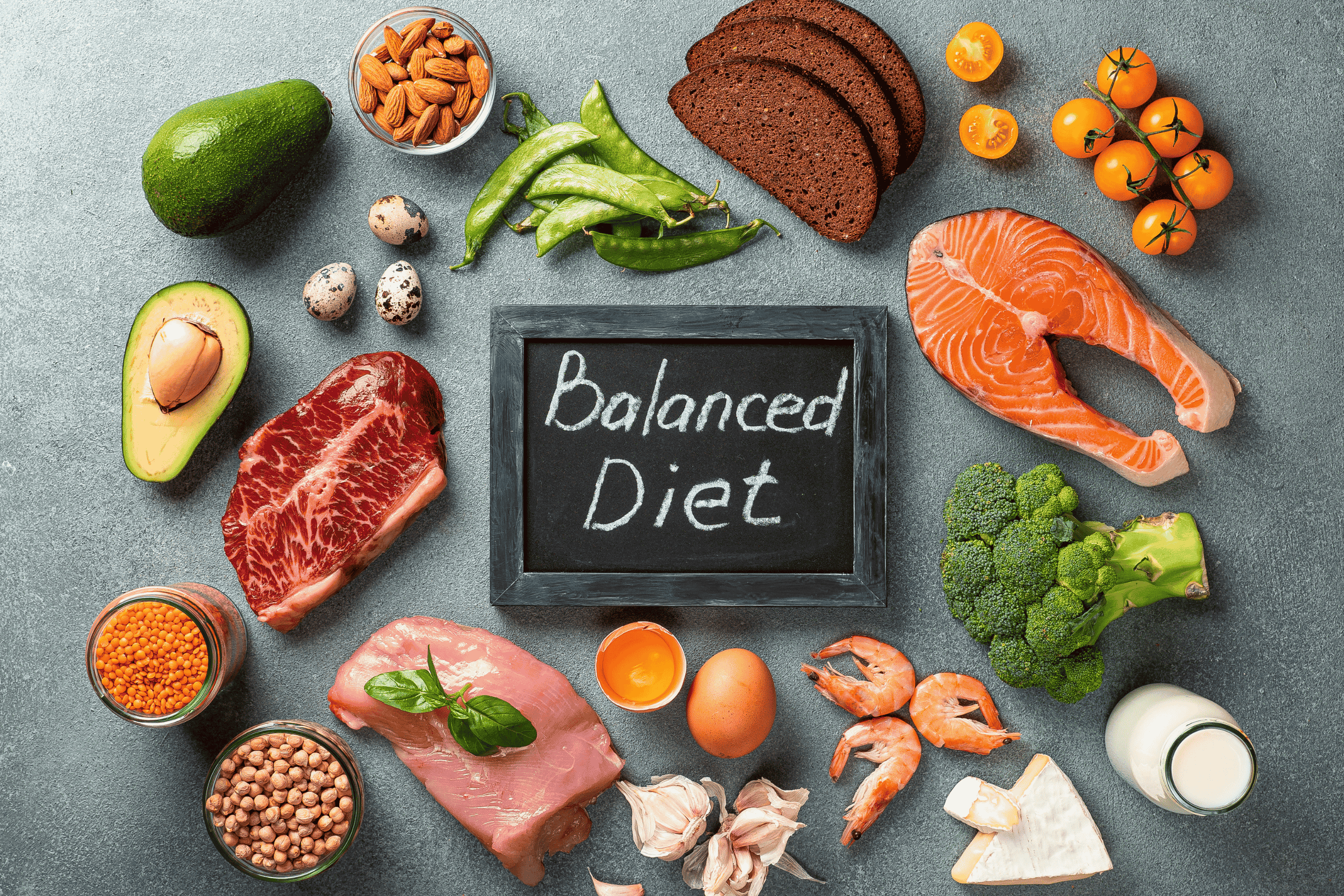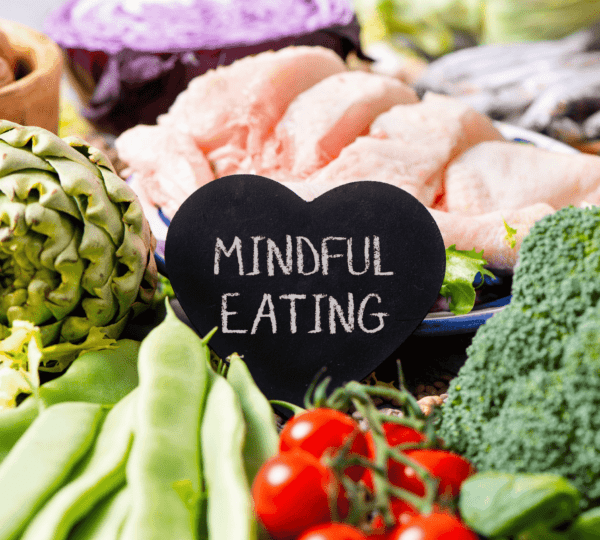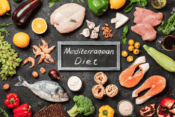
2025’s Ultimate Guide to Turning Diets into Lifestyles: Tips from Nutrition Experts
As the clock struck midnight on New Year’s Eve, Jake found himself surrounded by friends, celebrating the arrival of 2025. With a glass of sparkling water in hand, he reflected on his past resolutions. Each year, he had vowed to eat healthier and shed a few pounds, only to find himself back in old habits by February. This year felt different, though. After a particularly eye-opening conversation with his sister, a registered dietitian, Jake realized that the key to lasting change wasn’t just about following another restrictive diet; it was about transforming his relationship with food and making sustainable lifestyle changes.
With renewed determination, Jake set out to learn how to turn his diet into a lifestyle—one that would not only help him achieve his health goals but also enhance his overall well-being. In this comprehensive guide, we’ll explore how to make that transition successfully, drawing on expert advice and the latest nutritional science.
Understanding the Diet-to-Lifestyle Shift
The first step in turning a diet into a lifestyle is understanding the fundamental difference between the two approaches:
- Diets are typically short-term, restrictive eating plans aimed at quick weight loss.
- Lifestyle changes focus on long-term, sustainable habits that improve overall health and well-being.
Dr. Emily Chen, a leading nutritionist at the World Health Organization, explains, “The key to lasting health is not found in fad diets or quick fixes. It’s about making small, consistent changes that you can maintain for life.”
The Foundation: Balanced Nutrition
A healthy lifestyle starts with balanced nutrition. The World Health Organization recommends:
- Eating a variety of foods, including fruits, vegetables, legumes, nuts, and whole grains1.
- Consuming at least five portions (400g) of fruit and vegetables per day1.
- Limiting salt intake to less than 5g per day1.
- Reducing sugar consumption to less than 5% of total energy intake1.
- Keeping fat intake below 30% of total energy intake, favoring unsaturated fats1.
Practical Tips for Sustainable Eating Habits
1. Start with Small Changes
Dr. Lisa Rodriguez, a behavioral nutritionist, advises, “Don’t try to overhaul your entire diet overnight. Begin with one or two small changes and build from there.”
Practical steps:
- Add an extra serving of vegetables to your daily meals.
- Swap sugary drinks for water or unsweetened beverages.
- Choose whole grain options over refined grains.
2. Plan Your Meals
Meal planning is a crucial strategy for maintaining a healthy eating pattern. The Heart and Stroke Foundation of Canada recommends:
- Preparing most meals at home using whole or minimally processed foods2.
- Making a weekly eating plan to facilitate easy meal preparation2.
- Choosing recipes with plenty of vegetables and fruit2.
3. Practice Mindful Eating
Mindful eating involves paying full attention to the experience of eating and drinking. Dr. Michael Patel, a mindfulness expert, suggests:
- Eating slowly and without distraction.
- Listening to physical hunger cues and eating only until you feel full.
- Engaging all senses by noticing colors, smells, sounds, textures, and flavors.
4. Stay Hydrated
Proper hydration is often overlooked but is crucial for overall health. The World Cancer Research Fund recommends:
5. Incorporate More Plant-Based Foods
A plant-rich diet has numerous health benefits. The Flexitarian Diet, ranked among the top diets of 2025, emphasizes:
- Eating more fruits, vegetables, legumes, whole grains, and plant-based proteins5.
- Enjoying meat and animal products in moderation.
6. Cook at Home More Often
Cooking at home gives you control over ingredients and portion sizes. Nutrition experts at Rutgers Cancer Institute suggest:
- Stocking your kitchen with frozen fruits and vegetables, whole grains, and lean proteins for quick, healthy meals6.
- Experimenting with new, healthy recipes each week.
7. Practice Portion Control
Understanding and controlling portion sizes is key to maintaining a healthy weight. Try these strategies:
- Use smaller plates to naturally reduce portion sizes.
- Fill half your plate with vegetables, a quarter with lean protein, and a quarter with whole grains.
- Listen to your body’s hunger and fullness cues.
8. Allow for Flexibility
A sustainable healthy lifestyle includes room for occasional treats. Dr. Sarah Johnson, a registered dietitian, advises:
- Avoiding labeling foods as “good” or “bad.”
- Allowing yourself to enjoy favorite foods in moderation.
- Focusing on overall dietary patterns rather than individual meals.
9. Incorporate Regular Physical Activity
A healthy lifestyle isn’t just about food—regular physical activity is crucial. The World Cancer Research Fund recommends:
- Moving more throughout the day3.
- Finding enjoyable forms of exercise to increase adherence.
10. Seek Support and Accountability
Changing habits is easier with support. Consider:
- Joining a nutrition support group.
- Working with a registered dietitian.
- Enlisting friends or family members with similar health goals.
Overcoming Common Challenges
As Maya embarked on her journey to transform her diet into a lifestyle, she encountered several challenges. Here’s how to overcome common obstacles:
Challenge 1: Lack of Time
Solution: Batch cook meals on weekends, use a slow cooker, or prepare simple meals with whole ingredients6.
Challenge 2: Eating Out
Solution: Choose restaurants with healthier options, ask for dressings on the side, and don’t be afraid to make special requests2.
Challenge 3: Cravings
Solution: Allow for occasional treats, find healthier alternatives to favorite foods, and address emotional eating through mindfulness practices.
Challenge 4: Social Pressure
Solution: Communicate your health goals to friends and family, suggest social activities that don’t revolve around food, and have a plan for navigating social events.
The Science Behind Sustainable Lifestyle Changes
Understanding the science behind habit formation can help in making lasting changes. Dr. Alex Thompson, a neuroscientist specializing in behavior change, explains:
“It takes an average of 66 days for a new habit to become automatic. Consistency is key. Each time you practice a new habit, you’re strengthening neural pathways in your brain, making the behavior more natural over time.”
Looking Ahead: The Future of Nutrition in 2025 and Beyond
As we move further into 2025, several trends are shaping the future of nutrition:
- Personalized nutrition based on genetic testing and AI-powered meal planning.
- Increased focus on sustainable and plant-based eating for both health and environmental reasons.
- Integration of technology for real-time nutritional tracking and guidance.
- Growing emphasis on the gut-brain connection and the role of nutrition in mental health.
Conclusion: Your Journey to a Healthier Lifestyle
As Maya discovered, transforming a diet into a lifestyle is a journey, not a destination. It’s about progress, not perfection. By implementing these expert tips and making small, consistent changes, you too can create a sustainable, healthy lifestyle that nourishes your body and mind.
Remember, the best “diet” is one that you can maintain for life. It should be flexible, enjoyable, and aligned with your personal health goals and values. As you embark on your own journey to better health in 2025, be patient with yourself, celebrate small victories, and trust in the process of gradual, lasting change.
Here’s to your health and well-being in 2025 and beyond!
Disclaimer: The information provided in this article is for educational purposes only and should not be considered medical advice. Always consult with a healthcare professional or registered dietitian before making significant changes to your diet, especially if you have pre-existing health conditions or are taking medications.
References:
1 World Health Organization. (2024). 10 health tips for 2025. https://www.who.int/westernpacific/news-room/feature-stories/item/10-health-tips-for-2025
2 Heart and Stroke Foundation of Canada. (2019). Healthy eating basics. https://www.heartandstroke.ca/healthy-living/healthy-eating/healthy-eating-basics
3 World Cancer Research Fund. (2024). 25 ways to thrive in 2025. https://www.wcrf.org/about-us/news-and-blogs/25-ways-to-thrive-in-2025/
4 NHS. (n.d.). 8 tips for healthy eating. https://www.nhs.uk/Live-well/eat-well/how-to-eat-a-balanced-diet/eight-tips-for-healthy-eating/
5 Good Housekeeping. (2025). The 5 Best Diets of 2025, According to Registered Dietitians. https://www.goodhousekeeping.com/health/diet-nutrition/a63249501/best-diets-of-2025/
6 Rutgers Cancer Institute of New Jersey. (2024). Nutrition Experts Share Top Tips for Every Day Wellness. https://www.cinj.org/nutrition-experts-share-top-tips-every-day-wellness
7 CNN. (2025). 2025 best diet wins gold for wellness and disease prevention. https://edition.cnn.com/2025/01/03/health/2025-best-diet-wellness/index.html
8 Healthline. (2024). Healthy Eating 101: Nutrients, Macros, Tips, and More. https://www.healthline.com/nutrition/how-to-eat-healthy-guide












